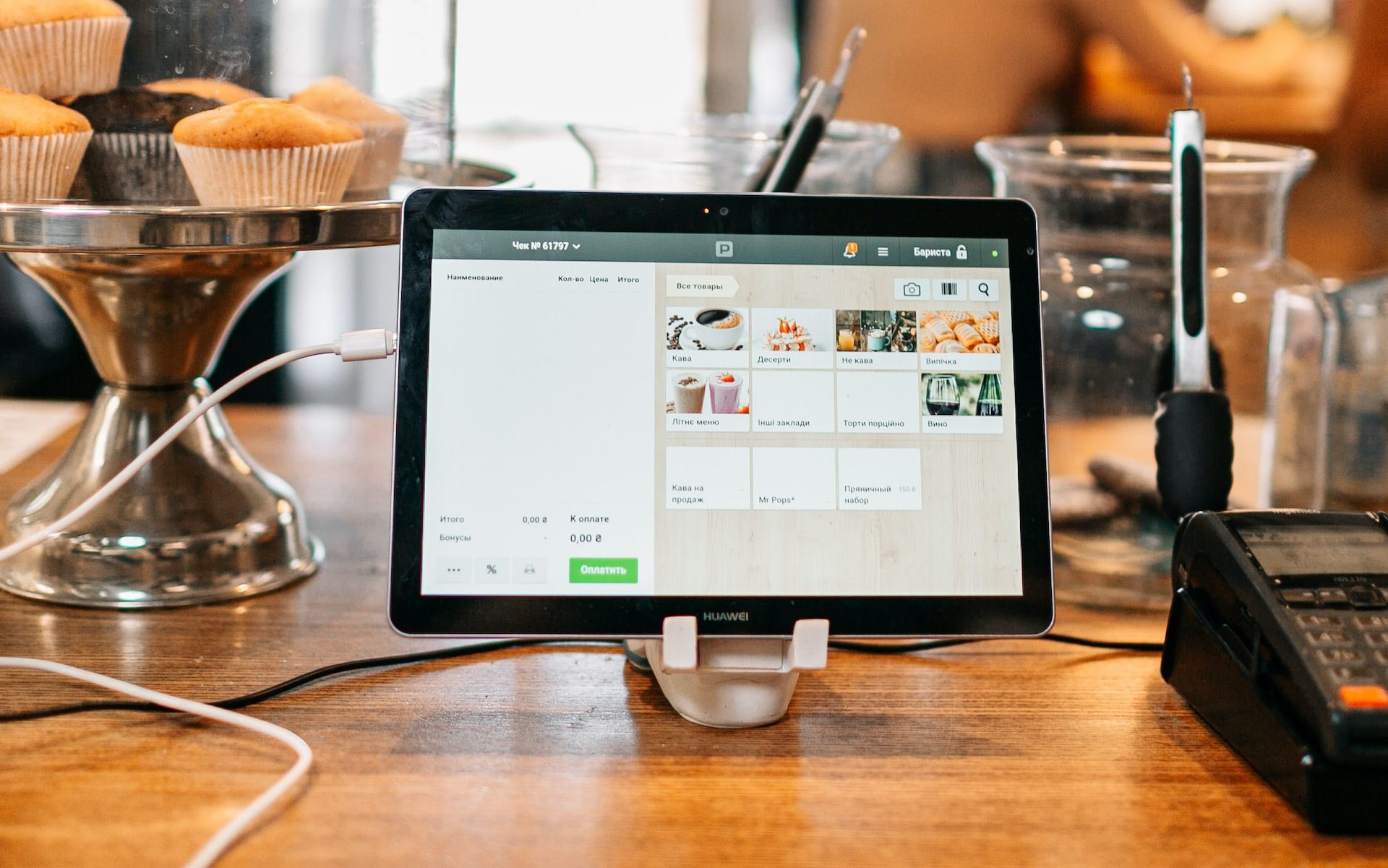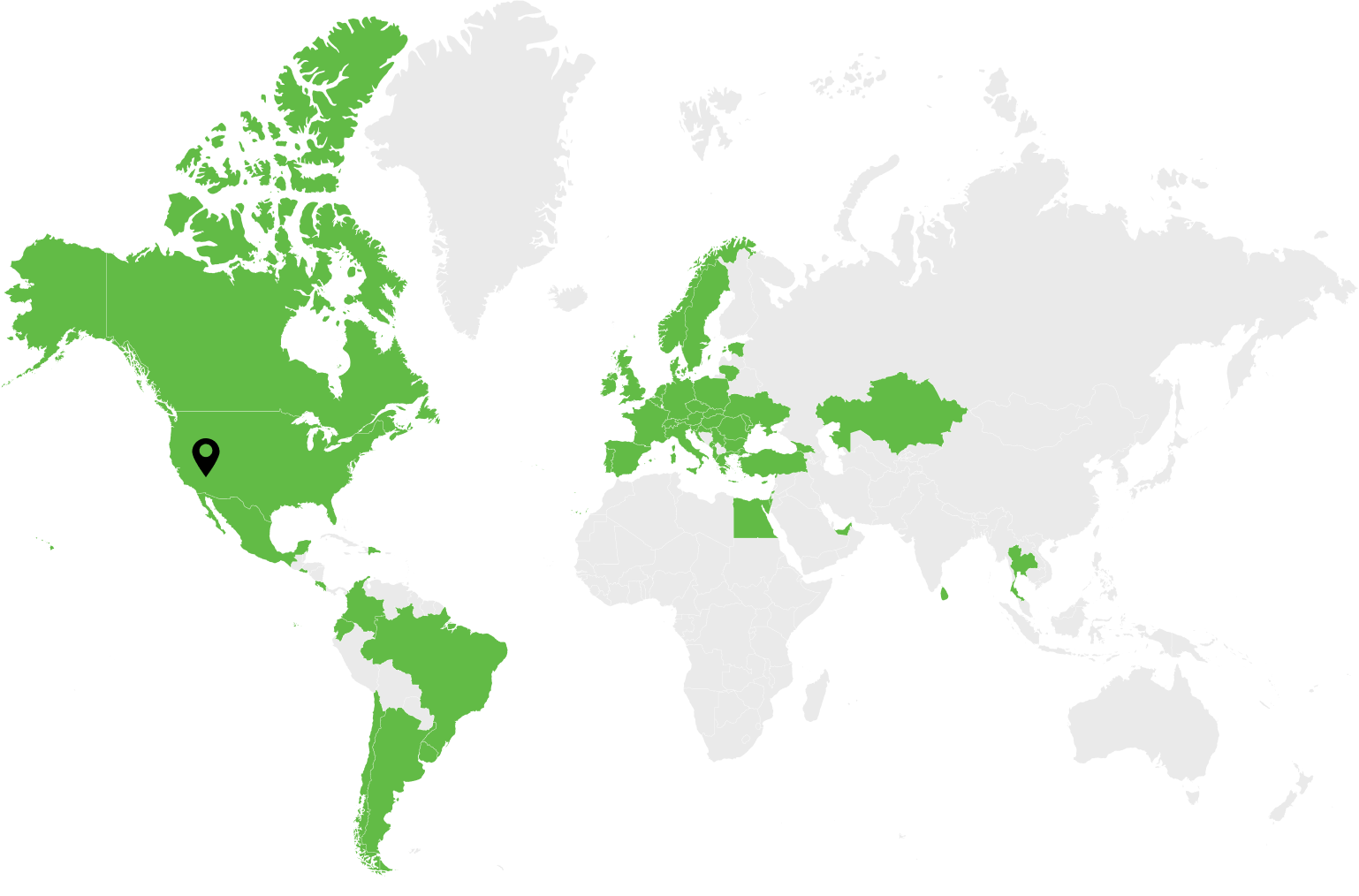POS development companies can build a custom POS system from scratch, integrate a bought solution into your ecosystem, or modernize a legacy system.
While many software development vendors will gladly hire some engineering talent for your project, it’s wiser to start by looking for teams with a proven background in hospitality software development. Such external expertise embeds just the right perspective into a project, helping to pick priorities to achieve the highest ROI at each phase of the process.
With the global POS software market reaching $9.78 billion in 2021 and a six-year CAGR of 10%, the competition among vendors of out-of-the-box solutions and custom POS development companies is growing, too.
Oracle’s acquisition of MICROS systems in 2014 and NetSuite two years later solidified its leader status in the domain. SAP is also strengthening its leader-league offering with the recent acquisition of Emarsys marketing software, enabling its “commerce everywhere” approach. Square, Cake, Toast, Lightspeed, and Shopify are younger but solid contenders in terms of software and hardware POS tools.
As the domain is adapting to a new cloud-as-norm omni-channel sales model, cashless payments, BOPIC, NFC payments, there’s lots of integration, modernization, and migration projects to be done.
In this piece, we’ll review the profile of a good custom POS development company—the one that will accelerate your project with the highest, yet sustainable, ROI.

POS Development Company: Definition
A POS development company is mostly referred to as a software development provider, specializing in custom integration, modernization, and customization projects for a hospitality or retail company. These teams will serve one client with a legacy system or a vendor solution that needs updates and modifications. Vast experience in payment systems, ecommerce, and restaurant software development is a requirement.
Dev.Pro is a POS development company: the team has been developing POS solutions for US clients for just under a decade and has an extensive Restaurant Tech and FinTech immersion.
POS Development Company vs POS Company
A POS system company or vender is usually a producer of Point-of-Sales software and hardware that sells licenses or subscriptions for their tools to multiple corporate clients.
SAP, Toast, Square, and Lighting are all POS vendors that create, market, and maintain their out-of-the-box products.
What Matters When Choosing a POS Development Company
These requirements will come in handy in case your company is:
- A major Point-of-Sale vendor that is looking to strengthen their inhouse engineering crew with some outsourced talent;
- A retailer or a hospitality player that needs to enhance, migrate or integrate their technology.
By paying attention to the criteria below during the selection process, you will safeguard smooth and predictable cooperation going forward.
Industry Experience
While tech expertise may seem like a priority, we place industry experience as number 1. The intricacies of payment systems, retail transactions, inventory management, tips handling, and seasonality are so critical and omnipresent that having a tech partner with a hospitality background is a critical success factor.
Ensure that your due diligence research with a potential POS development partner answers these questions:
- How long have you been working in hospitality / retail?
- What’s the number of team members involved in these projects?
- Can you present a client recommendation about projects such as [Clutch, website, personal intro]?
- What tech trends are shaping the industry today?
- What industry specifics are fundamental to building an efficient software for customers and company associates?
- How is hospitality / retail in your country unique or different from the global scene?
- Which market leaders strike you as progressive trendsetters and which technological approaches strike you as ahead-of-time inventions?
The next ace characteristic is POS development experience. If your vendor can tick off this box, too, your shortlist is shaping up.
POS Development Experience
Knowing how things work in retail is a fundamental requirement.
The next must-have layer of expertise lies in the realm of developing the software for Point-of-Sale tools.
These questions will help you get down to the extent of the know-how:
- Was the use case for an established POS vendor or a hospitality / retail client?
- What was the project duration? How many POS developers were involved? Describe their scope of works?
- Which modules and functions did the team contribute to?
- How much IoT integration did the project entail?
- What integrations did the project have? Ecommerce? Website? CRM? Inventory? Dropshipping? HRM? SCM tools?
- What are the core 5 POS features critical to commercial success and which got-to-have functionality can become a major USP?
- Have you developed any cloud-native solutions and have you had experience with legacy on-prem systems?
Having briefly touched on the cloud computing expertise levels, it’s time to get a more granular understanding of the potential custom POS development partner.
Cloud Computing Experience
Cloud computing technology has accelerated the tech revolution. But it also includes substantial financial and security risks when handled by cloud specialists with insufficient experience.
Make sure to get to the bottom of these questions:
- How many certified cloud engineers do you have in your organization?
- Which major cloud service providers have you contributed to? AWS? Azure? GCP?
- What’s your company’s cloud migration experience? Describe FTEs, timelines, scope. How do you approach service prioritization for a migration?
- Describe the mix of private cloud / public cloud / hybrid, and multi-cloud projects in your portfolio.
- What cloud cost optimization techniques are your go-to practices for a FinOps audit recommendation document?
Engagement Model
If you need to hire just a couple of engineers to develop a certain functionality or need a dozen experts with command of a specific programming language that’s hard to come by, first determine what’s the best engagement model for you.
Outsourced software engineering in 2023 is radically different from the initial concept at the beginning of the century. Now most engagement models suggest full integration of outsourced talent into the fiber of the company and project.
Remote work and cloud computing have reinforced these models of cooperation between the hiring company and the outsourcing software engineering teams:
- Dedicated teams
- Augmentation teams
- Extensions teams
- Nearshoring outsourcing
Smaller projects with a defined scope of work and detailed outcomes can still be charged on a per project basis. But ongoing team augmentation, where your inhouse teams get an injection of tech talent from around the world and fully integrate into your culture and meetups and fully align with your business goals, is likely to be charged by the time and materials model.
Dev.Pro prefers to collaborate as per these models: staff augmentation, dedicated teams, or extension teams. We will recruit from 2 FTEs to dozens at a time for one company. Our robust recruitment engine will provide a few strong candidates for the client’s interviews. Our PM and BA experts will then take full ownership of the process and work as a single point of contact for the partner. We are also usually fully integrated with the culture and meeting routine of inhouse teams, as experts are hired and assigned exclusively for one project.
IoT Integration Exposure
POS systems are usually integrated with an array of peripherals like barcode scanners, card terminals, cashier drawers, and maybe even touchscreen robots [like butler / delivery robots in hotels].
While some IoT integrations for restaurants and retail can be rather straightforward, others will require complex connectivity and architectural solutions.
When screening a potential POS software development company, get an understanding of how much IoT integration experience their team has and find out the complexity of their projects.
Responsiveness
One of the non-technical requirements we suggest you pay attention to is the team’s responsiveness from the get-go.
The hospitality software development projects can take time—and unexpected turns.
In order to ensure a smooth flow of your roadmap close to the budget and timelines, companies need a technical partner who is responsive, collaborative, hears what you are saying, and follows up to a dot.
Hear our CRO Brian Agee highlight how responsiveness is one of the Dev.Pro key values along with transparency and true partnership spirit.
Adaptability & Readiness to Pivot
With new tools emerging every month and new technological advances changing the decade’s constants overnight, competition reinventing the adaptability is a prerequisite in software development.
An experienced software development partner with a portfolio of long-term cases should be ready to pivot as the default setting.
When interviewing candidates to improve your technical ecosystem, make sure to ask about the instances when a project needed to change direction and how this situation was handled by management and the team.
Public Reviews and Private Recommendations
Check publicly available reviews and ask for nonpublic use cases.
Clutch, The Manifest, and Design Rush are good sources to see some of the reviews.
On the other hand, many software development agencies are too protective over their clients but will provide more cases upon request.
Pay attention to the genuineness of the reviews, how extensive they are, the caliber of existing clients, and if the client has been with your potential partner for a long time.
Just the Right Price Point
The right value for money ratio is what a weathered CTO looks out for when hiring POS developers.
Price is a relative thing. What comes across as expensive in one part of the world may be in the lower salary median for the other part of the world.
Once you have shortlisted 5–7 candidates to help you build a POS system based on their technical match, you will have a good range of price points to choose from. Just make sure to include firms with global presence and remote teams.
Our observation from over a decade in the field is that both extremes—the priciest and the cheapest offers—should be avoided. The priciest could mean that you are likely to be hiring an overqualified company for a less complex project. And the cheapest could mean that you may find your final budgets and timelines vastly different from what you initially created.
C-Suite Accessibility
Knowing that C-suite is accessible for a call during the interview process is a sign that you may also get hold of the management in case of a force majeure.
A 10-minute call with the company’s C-level when signing the deal provides first-hand experience of the management style that you are about to contract for years to come.
Detailed Approach
Another criterion that can help you make the right choice when it comes to hiring custom POS system developers is the level of detail they go into at any stage.
How detailed is your estimate? How deep in facts did the potential partner agency go during the intro call? Did they study your company website before the call? Do you have a good understanding of the hiring process and budget after receiving the estimate? Are meetings scheduled with ease and include all necessary information?
In matters as complex as developing software tools, attention to detail is a critical component of the success of ultimate output.
Time Difference Tolerance
Are you looking for a nearshoring format? Are you happy with 3–4 hours of working time overlapping with the extension team for a lower cost?
If you have never had an experience with outsourcing software development to companies across the ocean, you may want to include one or two suppliers in your shortlist and see how you feel about it.
If a 100% timezone fit is an absolute must for your company for some reason, you may be limiting yourself.
Major POS Companies – they Shape the Industry
We wanted to include a quick list of key POS system companies for a few reasons, but mostly because they are a great reference if you need to create your own product or customize an existing solution. In no particular order, these are some popular Point-of-Sale vendors in retail and hospitality:
- Block [formerly Square]
- Heartland
- SAP
- Vend [Lightspeed]
- Symphony POS by MICROS Oracle
- Clover
- Toast
- Epos Now
- Shopify
- TouchBistro
- Clover
- Korona
- Cake
Dev. Pro—Decade-Wise Custom POS Development Company
The reasons businesses start looking for a technical partner for POS development vary from the desire to migrate to the cloud to the need to integrate a new marketing tool or to create a payment system.
If you need to perform an integration project or create a custom POS solution from scratch, book our sales team for a 30-minute intro call.
Leverage our expertise. Start with an intro call that you can book here.

